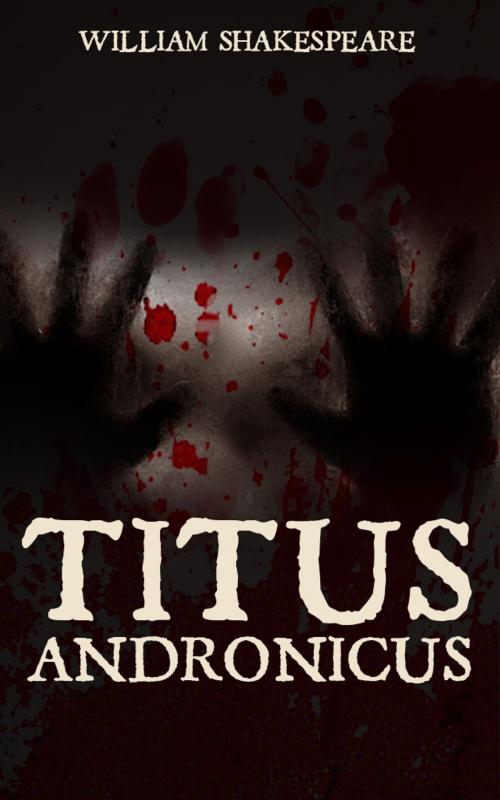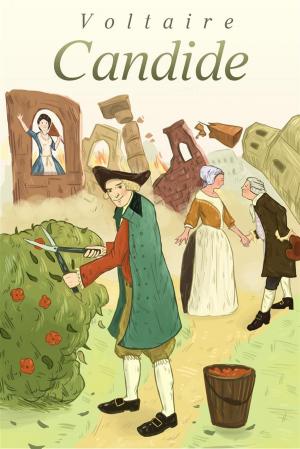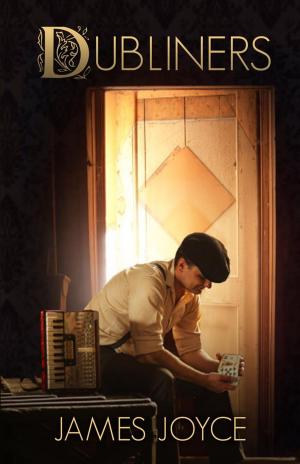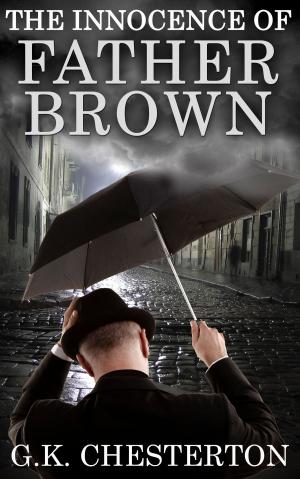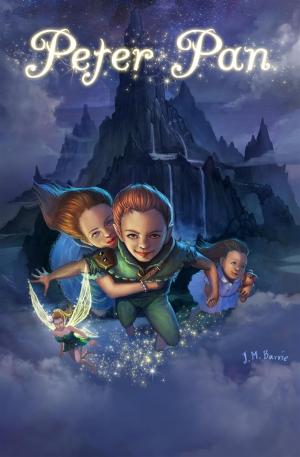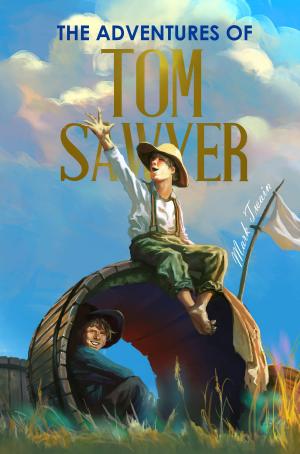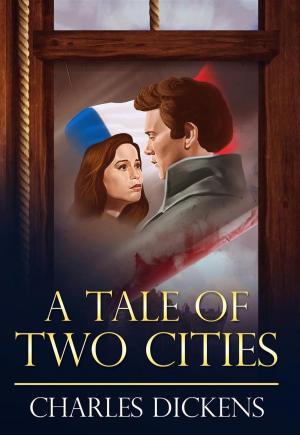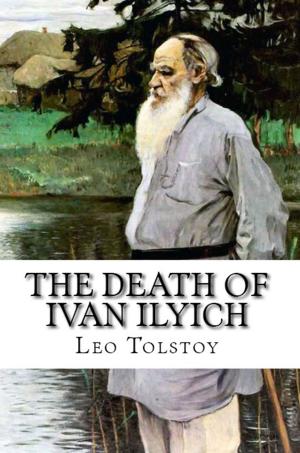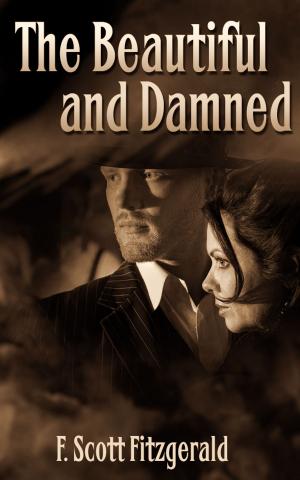Titus Andronicus
[Special Illustrated Edition] [Free Audio Links]
Nonfiction, Entertainment, Drama, Shakespeare, Fiction & Literature, Movie & Television Tie-Ins| Author: | William Shakespeare | ISBN: | 1230000160440 |
| Publisher: | Starbooks Classics Publishing | Publication: | August 16, 2013 |
| Imprint: | Language: | English |
| Author: | William Shakespeare |
| ISBN: | 1230000160440 |
| Publisher: | Starbooks Classics Publishing |
| Publication: | August 16, 2013 |
| Imprint: | |
| Language: | English |
Titus Andronicus is a tragedy by William Shakespeare, and possibly George Peele, believed to have been written between 1588 and 1593. It is thought to be Shakespeare's first tragedy, and is often seen as his attempt to emulate the violent and bloody revenge plays of his contemporaries, which were extremely popular with audiences throughout the sixteenth century.
The play is set during the latter days of the Roman Empire and tells the fictional story of Titus, a general in the Roman army, who is engaged in a cycle of revenge with Tamora, Queen of the Goths. It is Shakespeare's bloodiest and most violent work and traditionally was one of his least respected plays. Although it was extremely popular in its day, it fell out of favour during the Victorian era, primarily because of what was considered to be a distasteful use of graphic violence, but from around the middle of the twentieth century its reputation began to improve.
[Adaptations]
[Film]
In 1969, Robert Hartford-Davis planned to make a feature film starring Christopher Lee as Titus and Lesley-Anne Down as Lavinia, but the project never materialised.
The 1973 horror comedy film Theatre of Blood, directed by Douglas Hickox featured a very loose adaptation of the play. Vincent Price stars in the film as Edward Lionheart, regarded as the finest Shakespearean actor of all time. When he fails to be awarded the prestigious Critic's Circle Award for Best Actor, he sets out exacting bloody revenge on the critics who gave him poor reviews, with each act inspired by a death in a Shakespeare play. One such act of revenge involves the critic Meredith Merridew (played by Robert Morley). Lionheart abducts Merridew's prized poodles, and bakes them in a pie, which he then feeds to Merridew, before revealing all and force-feeding the critic until he chokes to death.
A 1997 straight-to-video adaptation, which cuts back on the violence, titled Titus Andronicus: The Movie, was directed by Lorn Richey and starred Ross Dippel as Titus, Aldrich Allen as Aaron) and Maureen Moran as Lavinia. Another straight-to-video- adaptation was made in 1998, directed by Christopher Dunne, and starring Robert Reese as Titus, Candy K. Sweet as Tamora, Lexton Raleigh as Aaron, Tom Dennis as Demitrius, with Levi David Tinker as Chiron and Amanda Gezik as Lavinia. This version enhanced the violence and increased the gore. For example, in the opening scene, Alarbus has his face skinned alive, and is then disembowelled and set on fire.
In 1999, Julie Taymor directed an adaptation entitled Titus, starring Anthony Hopkins as Titus, Jessica Lange as Tamora, Harry Lennix as Aaron (reprising his role from Taymor's 1994 theatrical production) and Laura Fraser as Lavinia. As with Taymor's stage production, the film begins with a young boy playing with toy soldiers and being whisked away to Ancient Rome, where he assumes the character of young Lucius. A major component of the film is the mixing of the old and modern; Chiron and Demetrius dress like modern rock stars, but the Andronici dress like Roman soldiers; some characters use chariots, some use cars and motorcycles; crossbows and swords are used alongside rifles and pistols; tanks are seen driven by soldiers in ancient Roman garb; bottled beer is seen alongside ancient bottles of wine; microphones are used to address characters in ancient clothing. According to Taymor, this anachronistic structure was created to emphasise the timelessness of the violence in the film, to suggest that violence is universal to all humanity, at all times: "Costume, paraphernalia, horses or chariots or cars; these represent the essence of a character, as opposed to placing it in a specific time. This is a film that takes place from the year 1 to the year 2000." At the end of the film, young Lucius takes the baby and walks out of Rome, which Taymor feels represents hope for the future. Originally, the film was to end as Taymor's 1994 production had, with the implication that Lucius is going to kill Aaron's baby, but during production of the film, actor Angus Macfadyen, who played Lucius, convinced Taymor that Lucius was an honourable man and wouldn't go back on his word. Lisa S. Starks reads the film as a revisionist horror movie and feels that Taymor is herself part of the process of twentieth century re-evaluation of the play: "In adapting a play that has traditionally evoked critical condemnation, Taymor calls into question that judgement, thereby opening up the possibility for new readings and considerations of the play within the Shakespeare canon."
William Shakespeare's Titus Andronicus, directed by Richard Griffin and starring Nigel Gore as Titus, Zoya Pierson as Tamora, Kevin Butler as Aaron and Molly Lloyd as Lavinia, was released direct to video in 2000. Shot on DV in and around Providence, Rhode Island with a budget of $12,000, the film is set in a modern business milieu. Saturninus is a corporate head who has inherited a company from his father, and the Goths feature as contemporary Goths.
[Television]
In 1970, Finnish TV channel Yle TV1 screened an adaptation of the play written and directed by Jukka Sipilä, starring Leo Lastumäki as Titus, Iris-Lilja Lassila as Tamora, Eugene Holman as Aaron and Maija Leino as Lavinia.
In 1985, the BBC produced a version of the play for their BBC Television Shakespeare series. Directed by Jane Howell, the play was the thirty-seventh and final episode of the series and starred Trevor Peacock as Titus, Eileen Atkins as Tamora, Hugh Quarshie as Aaron and Anna Calder-Marshall as Lavinia. Because Titus was broadcast several months after the rest of the seventh season, it was rumoured that the BBC were worried about the violence in the play and that disagreements had arisen about censorship. This was inaccurate however, with the delay caused by a BBC strike in 1984. The episode had been booked into the studio in February and March 1984, but the strike meant it couldn't shoot. When the strike ended, the studio couldn't be used as it was being used by another production, and then when the studio became available, the RSC was using Trevor Peacock, and filming didn't take place until February 1985, a year later than planned. Initially, director Jane Howell wanted to set the play in present day Northern Ireland, but she ultimately settled on a more conventional approach. All the body parts seen throughout were based upon real autopsy photographs, and were authenticated by the Royal College of Surgeons. The costumes of the Goths were based on punk outfits, with Chiron and Demetrius specifically based on the band KISS. For the scene when Chiron and Demetrius are killed, a large carcass is seen hanging nearby; this was a genuine lamb carcass purchased from a kosher butcher and smeared with vasaline to make it gleam under the studio lighting. In an unusual design choice, Howell had the Roman populace all wear identical generic masks without mouths, so as to convey the idea that the Roman people were faceless and voiceless, as she felt the play depicted a society which "seemed like a society where everyone was faceless except for those in power." The production was one of the most lauded plays of the series and garnered almost universally positive reviews.
For the most part, the adaptation followed Q1 exactly (and F1 for 3.2) with some minor alterations. For example, a few lines were cut from various scenes, such as Lavinia's "Ay, for these slips have made him noted long" (2.3.87), thus removing the continuity error regarding the duration of the Goths residence in Rome. Other examples include Titus' "Ah, wherefore dost thou urge the name of hands,/To bid Aeneas tell the tale twice o'er,/How Troy was burnt and he made miserable?" (3.2.26–28), Marcus' "What, what! The lustful sons of Tamora/Performers of this heinous, bloody deed" (4.1.78–79), and Titus and Marcus' brief conversation about Taurus and Aries (4.3.68–75). The adaptation also includes some lines from Q1 which were removed in subsequent editions; at 1.1.35 Titus' "bearing his valiant sons/in coffins from the field" continues with "and at this day,/To the Monument of that Andronicy/Done sacrifice of expiation,/And slaine the Noblest prisoner of the Gothes." These lines are usually omitted because they create a continuity problem regarding the sacrifice of Alarbus, which hasn't happened yet in the text. However, Howell got around this problem by beginning the play at 1.1.64 – the entrance of Titus. Then, at 1.1.168, after the sacrifice of Alarbus, lines 1.1.1 to 1.1.63 (the introductions of Bassianus and Saturninus) take place, thus Titus' reference to Alarbus' sacrifice makes chronological sense.
Another notable stylistic technique used in the adaptation is multiple addresses direct to camera. For example, Saturninus' "How well the tribune speaks to calm my thoughts" (1.1.46); Tamora's vow to slaughter the Andronici at 1.1.450–455 (thus absolving Saturninus from any involvement); Aaron's soliloquy in 2.1; Aaron's "Ay, and as good as Saturninus may" (2.1.91); Aaron's soliloquy in 2.3; Tamora's "Now will I hence to seek my lovely Moor,/And let my spleenful sons this trull deflower" (2.3.190–191); Aaron's two asides in 3.1 (ll.187–190 and 201–202); Lucius' "Now will I to the Goths and raise a power,/To be revenged on Rome and Saturnine" (3.1.298–299); Marcus' "O, heavens, can you hear a good man groan" speech (4.1.122–129); Young Lucius' asides in 4.2 (ll.6 and 8–9); Aaron's "Now to the Goths, as swift as swallow flies,/There to dispose this treasure in mine arms,/And secretly to greet the Empress' friends" (4.2.172–174); and Tamora's "Now will I to that old Andronicus,/And temper him with all the art I have,/To pluck proud Lucius from the warlike Goths" (4.4.107–109).
The most significant difference from the original play concerned the character of Young Lucius, who is a much more important figure in the adaptation; he is present throughout Act 1, and retrieves the murder weapon after the death of Mutius; it is his knife which Titus uses to kill the fly; he aids in the capture of Chiron and Demetrius; he is present throughout the final scene. Much as Julie Taymor would do in her 1999 filmic adaptation, Howell set Young Lucius as the centre of the production to prompt the question "What are we doing to the children?" At the end of the play, as Lucius delivers his final speech, the camera stays on Young Lucius rather than his father, who is in the far background and out of focus, as he stares in horror at the coffin of Aaron's child (which has been killed off-screen). Thus the production became "in part about a boy's reaction to murder and mutilation. We see him losing his innocence and being drawn into this adventure of revenge; yet, at the end we perceive that he retains the capacity for compassion and sympathy."
In 2001, the animated sitcom South Park based an episode on the play. In "Scott Tenorman Must Die", Eric Cartman is swindled by Scott Tenorman. Cartman tries various methods to get his money back, but Scott remains always one step ahead. He then decides to exact revenge on Scott. After numerous failed attempts, he hatches a plan which culminates in him having Scott’s parents killed, the bodies of whom he then cooks in chili, which he feeds to Scott. He then gleefully reveals his deception as Scott finds his mother's finger in the chilli.
Titus Andronicus is a tragedy by William Shakespeare, and possibly George Peele, believed to have been written between 1588 and 1593. It is thought to be Shakespeare's first tragedy, and is often seen as his attempt to emulate the violent and bloody revenge plays of his contemporaries, which were extremely popular with audiences throughout the sixteenth century.
The play is set during the latter days of the Roman Empire and tells the fictional story of Titus, a general in the Roman army, who is engaged in a cycle of revenge with Tamora, Queen of the Goths. It is Shakespeare's bloodiest and most violent work and traditionally was one of his least respected plays. Although it was extremely popular in its day, it fell out of favour during the Victorian era, primarily because of what was considered to be a distasteful use of graphic violence, but from around the middle of the twentieth century its reputation began to improve.
[Adaptations]
[Film]
In 1969, Robert Hartford-Davis planned to make a feature film starring Christopher Lee as Titus and Lesley-Anne Down as Lavinia, but the project never materialised.
The 1973 horror comedy film Theatre of Blood, directed by Douglas Hickox featured a very loose adaptation of the play. Vincent Price stars in the film as Edward Lionheart, regarded as the finest Shakespearean actor of all time. When he fails to be awarded the prestigious Critic's Circle Award for Best Actor, he sets out exacting bloody revenge on the critics who gave him poor reviews, with each act inspired by a death in a Shakespeare play. One such act of revenge involves the critic Meredith Merridew (played by Robert Morley). Lionheart abducts Merridew's prized poodles, and bakes them in a pie, which he then feeds to Merridew, before revealing all and force-feeding the critic until he chokes to death.
A 1997 straight-to-video adaptation, which cuts back on the violence, titled Titus Andronicus: The Movie, was directed by Lorn Richey and starred Ross Dippel as Titus, Aldrich Allen as Aaron) and Maureen Moran as Lavinia. Another straight-to-video- adaptation was made in 1998, directed by Christopher Dunne, and starring Robert Reese as Titus, Candy K. Sweet as Tamora, Lexton Raleigh as Aaron, Tom Dennis as Demitrius, with Levi David Tinker as Chiron and Amanda Gezik as Lavinia. This version enhanced the violence and increased the gore. For example, in the opening scene, Alarbus has his face skinned alive, and is then disembowelled and set on fire.
In 1999, Julie Taymor directed an adaptation entitled Titus, starring Anthony Hopkins as Titus, Jessica Lange as Tamora, Harry Lennix as Aaron (reprising his role from Taymor's 1994 theatrical production) and Laura Fraser as Lavinia. As with Taymor's stage production, the film begins with a young boy playing with toy soldiers and being whisked away to Ancient Rome, where he assumes the character of young Lucius. A major component of the film is the mixing of the old and modern; Chiron and Demetrius dress like modern rock stars, but the Andronici dress like Roman soldiers; some characters use chariots, some use cars and motorcycles; crossbows and swords are used alongside rifles and pistols; tanks are seen driven by soldiers in ancient Roman garb; bottled beer is seen alongside ancient bottles of wine; microphones are used to address characters in ancient clothing. According to Taymor, this anachronistic structure was created to emphasise the timelessness of the violence in the film, to suggest that violence is universal to all humanity, at all times: "Costume, paraphernalia, horses or chariots or cars; these represent the essence of a character, as opposed to placing it in a specific time. This is a film that takes place from the year 1 to the year 2000." At the end of the film, young Lucius takes the baby and walks out of Rome, which Taymor feels represents hope for the future. Originally, the film was to end as Taymor's 1994 production had, with the implication that Lucius is going to kill Aaron's baby, but during production of the film, actor Angus Macfadyen, who played Lucius, convinced Taymor that Lucius was an honourable man and wouldn't go back on his word. Lisa S. Starks reads the film as a revisionist horror movie and feels that Taymor is herself part of the process of twentieth century re-evaluation of the play: "In adapting a play that has traditionally evoked critical condemnation, Taymor calls into question that judgement, thereby opening up the possibility for new readings and considerations of the play within the Shakespeare canon."
William Shakespeare's Titus Andronicus, directed by Richard Griffin and starring Nigel Gore as Titus, Zoya Pierson as Tamora, Kevin Butler as Aaron and Molly Lloyd as Lavinia, was released direct to video in 2000. Shot on DV in and around Providence, Rhode Island with a budget of $12,000, the film is set in a modern business milieu. Saturninus is a corporate head who has inherited a company from his father, and the Goths feature as contemporary Goths.
[Television]
In 1970, Finnish TV channel Yle TV1 screened an adaptation of the play written and directed by Jukka Sipilä, starring Leo Lastumäki as Titus, Iris-Lilja Lassila as Tamora, Eugene Holman as Aaron and Maija Leino as Lavinia.
In 1985, the BBC produced a version of the play for their BBC Television Shakespeare series. Directed by Jane Howell, the play was the thirty-seventh and final episode of the series and starred Trevor Peacock as Titus, Eileen Atkins as Tamora, Hugh Quarshie as Aaron and Anna Calder-Marshall as Lavinia. Because Titus was broadcast several months after the rest of the seventh season, it was rumoured that the BBC were worried about the violence in the play and that disagreements had arisen about censorship. This was inaccurate however, with the delay caused by a BBC strike in 1984. The episode had been booked into the studio in February and March 1984, but the strike meant it couldn't shoot. When the strike ended, the studio couldn't be used as it was being used by another production, and then when the studio became available, the RSC was using Trevor Peacock, and filming didn't take place until February 1985, a year later than planned. Initially, director Jane Howell wanted to set the play in present day Northern Ireland, but she ultimately settled on a more conventional approach. All the body parts seen throughout were based upon real autopsy photographs, and were authenticated by the Royal College of Surgeons. The costumes of the Goths were based on punk outfits, with Chiron and Demetrius specifically based on the band KISS. For the scene when Chiron and Demetrius are killed, a large carcass is seen hanging nearby; this was a genuine lamb carcass purchased from a kosher butcher and smeared with vasaline to make it gleam under the studio lighting. In an unusual design choice, Howell had the Roman populace all wear identical generic masks without mouths, so as to convey the idea that the Roman people were faceless and voiceless, as she felt the play depicted a society which "seemed like a society where everyone was faceless except for those in power." The production was one of the most lauded plays of the series and garnered almost universally positive reviews.
For the most part, the adaptation followed Q1 exactly (and F1 for 3.2) with some minor alterations. For example, a few lines were cut from various scenes, such as Lavinia's "Ay, for these slips have made him noted long" (2.3.87), thus removing the continuity error regarding the duration of the Goths residence in Rome. Other examples include Titus' "Ah, wherefore dost thou urge the name of hands,/To bid Aeneas tell the tale twice o'er,/How Troy was burnt and he made miserable?" (3.2.26–28), Marcus' "What, what! The lustful sons of Tamora/Performers of this heinous, bloody deed" (4.1.78–79), and Titus and Marcus' brief conversation about Taurus and Aries (4.3.68–75). The adaptation also includes some lines from Q1 which were removed in subsequent editions; at 1.1.35 Titus' "bearing his valiant sons/in coffins from the field" continues with "and at this day,/To the Monument of that Andronicy/Done sacrifice of expiation,/And slaine the Noblest prisoner of the Gothes." These lines are usually omitted because they create a continuity problem regarding the sacrifice of Alarbus, which hasn't happened yet in the text. However, Howell got around this problem by beginning the play at 1.1.64 – the entrance of Titus. Then, at 1.1.168, after the sacrifice of Alarbus, lines 1.1.1 to 1.1.63 (the introductions of Bassianus and Saturninus) take place, thus Titus' reference to Alarbus' sacrifice makes chronological sense.
Another notable stylistic technique used in the adaptation is multiple addresses direct to camera. For example, Saturninus' "How well the tribune speaks to calm my thoughts" (1.1.46); Tamora's vow to slaughter the Andronici at 1.1.450–455 (thus absolving Saturninus from any involvement); Aaron's soliloquy in 2.1; Aaron's "Ay, and as good as Saturninus may" (2.1.91); Aaron's soliloquy in 2.3; Tamora's "Now will I hence to seek my lovely Moor,/And let my spleenful sons this trull deflower" (2.3.190–191); Aaron's two asides in 3.1 (ll.187–190 and 201–202); Lucius' "Now will I to the Goths and raise a power,/To be revenged on Rome and Saturnine" (3.1.298–299); Marcus' "O, heavens, can you hear a good man groan" speech (4.1.122–129); Young Lucius' asides in 4.2 (ll.6 and 8–9); Aaron's "Now to the Goths, as swift as swallow flies,/There to dispose this treasure in mine arms,/And secretly to greet the Empress' friends" (4.2.172–174); and Tamora's "Now will I to that old Andronicus,/And temper him with all the art I have,/To pluck proud Lucius from the warlike Goths" (4.4.107–109).
The most significant difference from the original play concerned the character of Young Lucius, who is a much more important figure in the adaptation; he is present throughout Act 1, and retrieves the murder weapon after the death of Mutius; it is his knife which Titus uses to kill the fly; he aids in the capture of Chiron and Demetrius; he is present throughout the final scene. Much as Julie Taymor would do in her 1999 filmic adaptation, Howell set Young Lucius as the centre of the production to prompt the question "What are we doing to the children?" At the end of the play, as Lucius delivers his final speech, the camera stays on Young Lucius rather than his father, who is in the far background and out of focus, as he stares in horror at the coffin of Aaron's child (which has been killed off-screen). Thus the production became "in part about a boy's reaction to murder and mutilation. We see him losing his innocence and being drawn into this adventure of revenge; yet, at the end we perceive that he retains the capacity for compassion and sympathy."
In 2001, the animated sitcom South Park based an episode on the play. In "Scott Tenorman Must Die", Eric Cartman is swindled by Scott Tenorman. Cartman tries various methods to get his money back, but Scott remains always one step ahead. He then decides to exact revenge on Scott. After numerous failed attempts, he hatches a plan which culminates in him having Scott’s parents killed, the bodies of whom he then cooks in chili, which he feeds to Scott. He then gleefully reveals his deception as Scott finds his mother's finger in the chilli.
